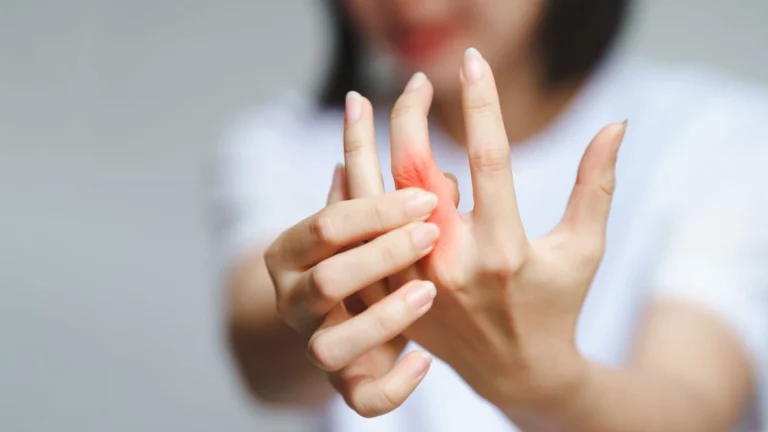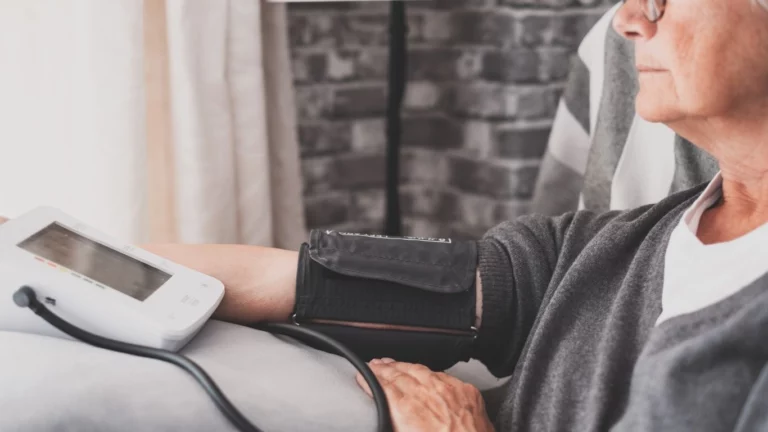How to Stop GERD and Stomach Rumbling After Eating Fast
If you’ve ever finished a meal only to be greeted by loud stomach rumbling and that awful burning sensation creeping up your chest, you’re definitely not alone. In my years as a Medical Assistant working in a Gastroenterology Clinic, I’ve had countless patients nervously ask, “Is it normal for my stomach to growl so much after I eat?” And more often than not, the culprit turns out to be GERD and stomach rumbling after eating. It’s one of those uncomfortable combos that people tend to ignore or brush off, but it can tell us a lot about what’s going on in the digestive system.
What Is GERD, Really?

Gastroesophageal Reflux Disease, or GERD, is more than just the occasional heartburn or acid burp. It’s a chronic condition where acid from your stomach regularly flows back into your esophagus. Trust me—when you work in GI, you see how often it goes misdiagnosed or untreated. Some folks think it’s “just indigestion” and keep chugging antacids. But here’s the kicker: that acid reflux can irritate your stomach lining, cause bloating, and even lead to those strange gurgling noises after meals.
Why the Rumble?
Now, let’s talk about the elephant—or rather, the growling bear—in the room: that noisy stomach. Stomach rumbling, technically called borborygmi (yep, it has a fancy name), happens when gas or fluid moves through the intestines. When it’s especially loud after eating, it might be due to poor digestion or extra air trapped in your GI tract. And if GERD is part of the picture, it could be a sign your digestive system is overcompensating or irritated.
Common Causes of Stomach Rumbling with GERD
- Delayed gastric emptying: When food lingers in the stomach too long, it can ferment and create gas. GERD can slow this process.
- Swallowed air: A lot of folks with acid reflux swallow more air—either from frequent swallowing to soothe the burn or from drinking carbonated beverages.
- Increased peristalsis: The gut might go into overdrive to move food along, especially if it’s irritated by acid or certain trigger foods.
My Clinic Observations: What Patients Often Report

In our clinic, I’d say at least 30% of patients who come in for heartburn also mention gurgling or rumbling in their stomachs. Sometimes they’re embarrassed to bring it up, thinking it’s not relevant. But it almost always is. A lot of them describe it like this: “It sounds like my stomach is talking,” or “There’s this weird churning noise right after lunch.” And when we dig into their habits, we often find patterns that point to reflux triggers—things like skipping meals, scarfing down food too quickly, or eating greasy takeout late at night.
When Should You Worry?
Not every growl is a red flag, but certain signs mean you should pay closer attention. If you’re hearing rumbling after most meals and also noticing:
- Frequent heartburn (more than twice a week)
- Regurgitation or sour taste in your mouth
- Bloating or upper abdominal discomfort
- Feeling like food is stuck in your throat
…then it’s time to consider GERD as a possible cause. In my experience, people wait too long to seek help. They’ll try every over-the-counter remedy before finally coming in. And honestly? That delay can lead to more inflammation and long-term damage.
Eating Habits That Can Make Things Worse

One of the first things we talk about in the clinic is diet. You’d be amazed how often lifestyle habits are at the root of both reflux and those post-meal stomach sounds. A few key offenders:
- Eating too fast: The faster you eat, the more air you swallow, and the harder your stomach works.
- Large portions: Overfilling the stomach increases pressure on the lower esophageal sphincter, causing acid to creep upward.
- Trigger foods: Think spicy foods, caffeine, chocolate, tomato-based sauces—your digestive tract might rebel loudly.
- Lying down right after eating: Gravity helps keep acid where it belongs. Skip the post-meal nap!
I always tell patients: sometimes small changes in how and when you eat can be just as powerful as medication. But we’ll get into more on that later.
Simple Changes That Can Actually Help

One thing I always tell my patients—and something I’ve seen make a *huge* difference—is that you don’t have to overhaul your entire life to see improvement. GERD and stomach rumbling after eating can often be managed with small, consistent tweaks. No magic pills here, just practical stuff that works in the real world. You’d be surprised how often people just need a little guidance and encouragement.
My Go-To Tips for Daily Life
- Smaller, more frequent meals: Instead of loading up on three big meals, try splitting them into five lighter ones. Less pressure on your stomach = less reflux and grumbling.
- Chew your food like you mean it: I’ve had patients who admitted they scarfed down their lunch in under five minutes. Slow down, chew well—digestion starts in the mouth!
- Stay upright after meals: This one’s a game changer. Just 20–30 minutes of sitting up or walking around can help prevent acid from creeping back up.
- Hydrate smarter: Chugging water during meals can dilute stomach acid. Instead, sip between meals to avoid sloshing in your stomach post-lunch.
These might sound simple, but when people stick with them, they often report fewer episodes of reflux and less of that weird noisy gut feeling. It’s not flashy advice—but it’s the kind that sticks because it actually works.
GERD and Stress: Yep, There’s a Link

One of the more surprising things I’ve seen over the years is how big of a role stress plays in digestive health. GERD and stomach rumbling after eating aren’t just about food. I’ve had patients come in during high-stress periods—divorce, work burnout, caregiving—and suddenly they’re battling acid reflux out of nowhere. The gut-brain connection is real.
When we’re stressed, digestion slows, acid production changes, and we tend to eat poorly or at weird times. It’s a triple threat. I’ve worked with patients who swore they were eating “clean,” but their symptoms flared during stressful months. Once they started managing their stress—journaling, walking, meditating, whatever worked for them—their reflux and digestive noise calmed down too.
Try These Gut-Calming Habits
- Practice deep breathing before meals—relaxes your vagus nerve and improves digestion.
- Go for a short walk after dinner—gentle movement helps reduce gas and aid motility.
- Keep a food and symptom journal—this helps you identify patterns and triggers over time.
There’s no one-size-fits-all fix here, but learning to listen to your body is key. Your gut is like a second brain—it knows when you’re overwhelmed.
Foods That Might Be Sabotaging You

Let’s talk food—because honestly, this is where most people go wrong. I can’t even count how many patients I’ve spoken with who thought they were eating “healthy” but were unknowingly triggering their GERD and stomach rumbling after eating. Avocados, garlic, citrus, even oatmeal for some folks—yep, all possible triggers depending on your system.
The Frequent Offenders
- Spicy foods: Think hot sauce, jalapeños, curries—super common in reflux flare-ups.
- Carbonated drinks: All that fizz = trapped gas = gurgling gut.
- Tomato-based sauces: Acidic and sneaky—they show up in pasta, pizza, soups.
- Chocolate and mint: Both relax the lower esophageal sphincter, which makes reflux more likely.
- Fatty foods: Burgers, fried snacks, creamy dressings—they slow digestion, giving acid more time to bubble up.
Now, I’m not saying you can never enjoy a slice of pizza again. But once you know your personal triggers, you can plan around them. Some of my patients do great with 80/20—eating carefully 80% of the time and indulging mindfully the other 20%. That way, food isn’t the enemy, but a part of the plan.
When Lifestyle Changes Aren’t Enough
There are definitely cases where diet and routine tweaks just don’t cut it. In those situations, we start looking at other interventions. I’ve helped patients coordinate with gastroenterologists to explore:
- Proton pump inhibitors (PPIs): These reduce stomach acid significantly and can offer real relief when symptoms are moderate to severe.
- H2 blockers: A bit gentler than PPIs and good for occasional use.
- Prokinetics: Help the stomach empty faster, which can reduce both acid reflux and gurgling.
- Endoscopy or imaging: To rule out more serious issues like ulcers, hiatal hernias, or motility disorders.
One of the best things you can do is advocate for yourself. If you’re experiencing GERD and stomach rumbling after eating on the regular, don’t just settle for surface-level relief. Get to the root cause. And please—don’t be afraid to ask questions at your appointment. The best results always come when the patient is part of the plan, not just along for the ride.
Long-Term Strategies to Keep GERD and Stomach Rumbling in Check

By this point, you’ve got a pretty good picture of what GERD and stomach rumbling after eating look like—and how lifestyle tweaks and medical treatments can help. But here’s something I’ve learned from years working in a GI clinic: managing GERD isn’t a one-time fix. It’s an ongoing process. The good news? With the right approach, it’s totally manageable, and those embarrassing stomach growls don’t have to rule your life.
Consistency Is Key
I can’t stress this enough. Whether it’s sticking to smaller meals, avoiding trigger foods, or managing stress, the best results come when you make these habits part of your routine—not just a temporary patch. My patients who find the most relief are the ones who get curious about their bodies and start tuning in to what makes their symptoms worse or better. It’s a process, and it takes time.
Working With Your Healthcare Team
One of the biggest advantages you have is access to a care team that really understands GERD. From gastroenterologists and dietitians to nurses and Medical Assistants (like myself), we’re all here to help you figure this out. Don’t hesitate to:
- Ask questions about your symptoms and treatment options
- Request referrals to dietitians who specialize in digestive health
- Discuss any side effects of medications or concerns you have
- Seek support for stress or mental health issues that might affect your digestion
In my experience, patients who actively engage with their providers and share their daily experiences tend to get better-tailored care—and faster symptom relief.
When to Consider Diagnostic Testing

Sometimes, despite your best efforts, symptoms hang around or get worse. That’s when more detailed testing might be necessary. Here’s what might be recommended:
- Upper endoscopy (EGD): A camera is used to look at the esophagus and stomach lining to check for inflammation, ulcers, or other damage.
- pH monitoring: Measures acid levels in your esophagus over 24-48 hours to confirm reflux severity.
- Esophageal manometry: Tests how well the muscles in your esophagus are working.
- Imaging studies: Such as barium swallow X-rays to check for anatomical issues like hiatal hernias.
From what I’ve seen, these tests can be really reassuring for patients, especially if symptoms feel confusing or don’t fit the usual patterns. They help your doctor tailor a treatment plan that fits exactly what’s going on inside your body.
Personalizing Your Path Forward
Every person’s journey with GERD is unique, and stomach rumbling after eating is just one piece of the puzzle. As someone who has spent years helping patients navigate this, my biggest piece of advice is to be patient with yourself. You might have to try different foods, adjust your routine, or tweak your medications to find what really works for you.
Remember, there’s no shame in needing help or wanting to learn more. The gut is an incredibly complex system, and it takes time to find your personal “sweet spot.” But with consistent care and support, you can definitely reduce symptoms and live comfortably.
If you’re ever unsure or your symptoms change suddenly, always reach out to a healthcare provider. Early intervention is key to avoiding complications.
References
- https://www.niddk.nih.gov/
- https://www.mayoclinic.org/
- https://www.cdc.gov/
- https://www.americanheartburn.org/
Disclaimer
The information provided here is based on my experience as a Medical Assistant in a Gastroenterology Clinic and current understanding of GERD and digestive health. This article is intended for educational purposes and should not replace professional medical advice, diagnosis, or treatment. If you experience persistent or severe symptoms, please consult a healthcare professional promptly.

Camellia Wulansari is a dedicated Medical Assistant at a local clinic and a passionate health writer at Healthusias.com. With years of hands-on experience in patient care and a deep interest in preventive medicine, she bridges the gap between clinical knowledge and accessible health information. Camellia specializes in writing about digestive health, chronic conditions like GERD and hypertension, respiratory issues, and autoimmune diseases, aiming to empower readers with practical, easy-to-understand insights. When she’s not assisting patients or writing, you’ll find her enjoying quiet mornings with coffee and a medical journal in hand—or jamming to her favorite metal band, Lamb of God.







